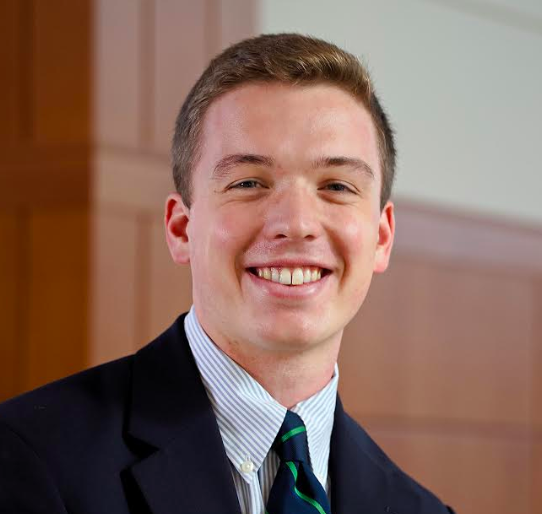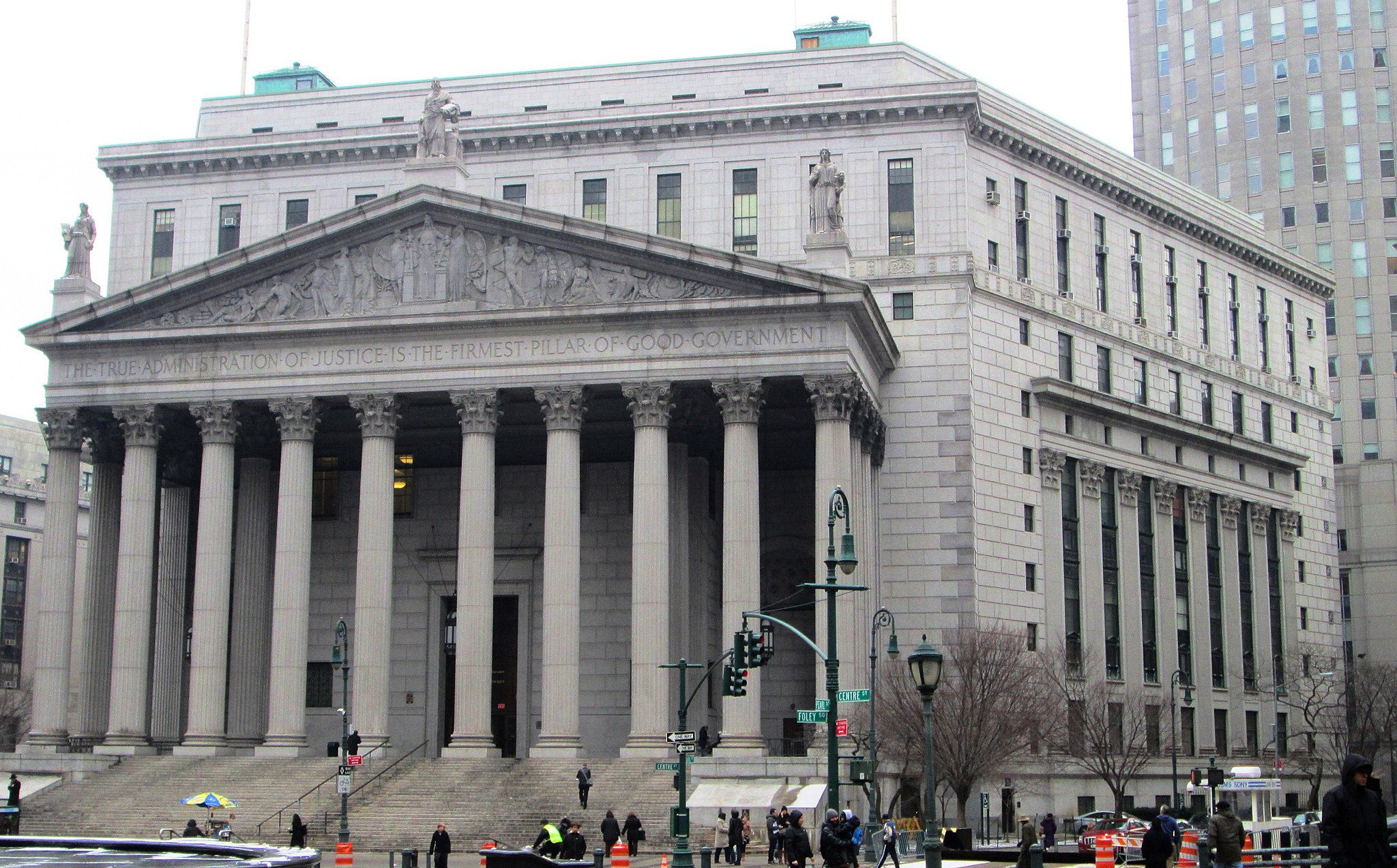Today's Headlines and Commentary
The special counsel investigation charged attorney Alex van der Zwaan on Friday with making false statements about his communications with former Trump campaign aide Rick Gates, the New York Times reports. The communications regarded work in Ukraine. Zwaan formerly worked in London for Skadden, Arps, Slate, Meagher & Flom. He will appear in court on Tuesday.
Published by The Lawfare Institute
in Cooperation With

The special counsel investigation charged attorney Alex van der Zwaan on Friday with making false statements about his communications with former Trump campaign aide Rick Gates, the New York Times reports. The communications regarded work in Ukraine. Zwaan formerly worked in London for Skadden, Arps, Slate, Meagher & Flom. He will appear in court on Tuesday.
North Korea is widening the scope and enhancing the sophistication of its cyber weapons, the Washington Post states. A report from FireEye, a cybersecurity company , indicates that Kim Jong Un’s regime has been exploiting formerly unknown holes in the internet to advance its cyber-espionage campaigns. The report also identified a cyber-espionage group, which it calls APT37, as the culprit for a number of attacks carried out in South Korea, Japan, Vietnam and the Middle East. The group exploits zero-day vulnerabilities, which are software bugs not previously known to developers enabling the hackers to defeat even “mature security programs.”
Jihadist groups are increasingly taking to digital currency exchanges such as bitcoin to solicit funding and evade the rules designed by the international banking system to prevent money laundering and block terrorism financing, the Wall Street Journal reports. Rep. Ted Budd introduced legislation in January to create a “financial-technology task force” to investigate and push back against terrorist organizations’ use of cryptocurrency. Treasury Secretary Steven Mnuchin informed the Senate banking committee that his department intends to investigate the phenomenon further.
Tension over the ongoing Russia investigation and the release of the controversial Nunes memo has become so intense that members of the House intelligence committee worry that the panel is not adequately addressing other national security threats, Politico reports. According to Rep. Tom Rooney, a recent briefing on “global hotspots” was barely attended by panel members because they were preoccupied by talking to reporters about a “Russia-related dispute.” Rep. Peter King, also a member of the committee, added that “political infighting” has started to undermine the committee’s work on threats unrelated to Russia. Democrats on the committee blame the partisan “poison” on Nunes.
As Saudi Arabia builds up to awarding a multibillion-dollar contract to construct a pair of nuclear reactors, the Trump administration is weighing whether to prioritize the interests of an American company or counterproliferation, the Post reports. Westinghouse is among the finalists under consideration by crown prince Mohammed bin Salman to receive the lucrative contract. To promote the company, however, the administration must “bend rules designed to limit nuclear proliferation in an unstable part of the world,” which could encourage other Middle Eastern countries to pursue the construction of nuclear reactors, thereby increasing security risks in the region. Robert Einhorn, a senior fellow at the Brookings Institution and a former nonproliferation adviser to the State Department, notes the advantage of having “America’s nuclear industry in Saudi Arabia” rather than Russia or China’s. Einhorn elaborated that this tactic would enable America to secure better constraints on Saudi Arabia’s enrichment and reprocessing than an inflexible policy of non-engagement would.
In the wake of the school shooting in Florida last week, Twitter accounts with suspected links to Russia entered the gun control debate in an effort to sow division between Americans, the Times reports. Some accounts used hashtags such as #guncontrolnow, #gunreformnow, and #Parklandshooting to insert themselves into the sensitive debate on gun laws. Using current events to sow divisiveness among Americans mirrors previous tactics that such accounts have used. Hamilton 68, a project of the Alliance for Securing Democracy at the German Marshall Fund, monitors Russian troll accounts. The accounts have promoted divisive political content on social media in the past.
Pro-government bombings in eastern Ghouta, Syria, on Tuesday killed nearly 100 people, including children and emergency workers, the Times reports. Bombings Monday night severely damaged five medical facilities in the city, and the U.N. issued a blank statement condemning the “targeting of innocent civilians and infrastructure.” Eastern Ghouta remains in the hands of Syrian rebels at the moment, and the Assad regime and its Russian ally have escalated their aerial campaign in an effort to drive the rebels from the city. Mercilessly targeting civilians in an attempt to force a rebel surrender is nothing new, and has been employed by the regime and Russian forces in battles throughout Syria.
ICYMI: This Weekend on Lawfare
Andrew Keane Woods argued that the special counsel’s indictment of Russian hackers, which depended on access to data across borders, underlines the importance of the Microsoft-Ireland case.
Christopher Fuller detailed the origins of U.S. drone policy and how American counterterrorism efforts came to rely on drones.
Timothy Edgar argued that Mueller’s indictment of Russian hackers will not make Russia behave in the same way that the 2014 indictment of Chinese hackers in United States v. Wang Dong made China behave.
Bob Bauer argued that the Rob Porter scandal captures much of what we might expect from Donald Trump’s presidency.
Jack Goldsmith argued that the special counsel’s indictment of Russian hackers could unwittingly aid U.S. adversaries.
Julia Solomon-Strauss and Sarah Grant reported that military judge Col. Vance Spath placed the United States v. Al-Nashiri case on indefinite hold.
Email the Roundup Team noteworthy law and security-related articles to include, and follow us on Twitter and Facebook for additional commentary on these issues. Sign up to receive Lawfare in your inbox. Visit our Events Calendar to learn about upcoming national security events, and check out relevant job openings on our Job Board.


.jpg?sfvrsn=31a7c788_5)


